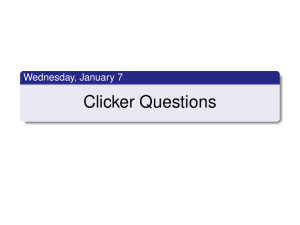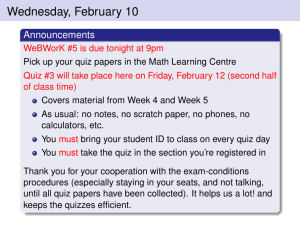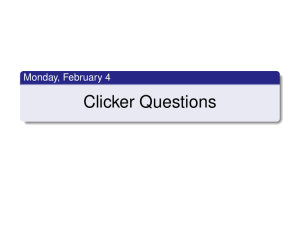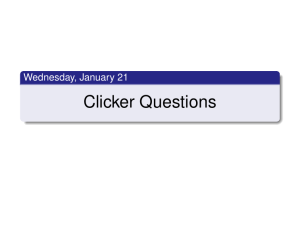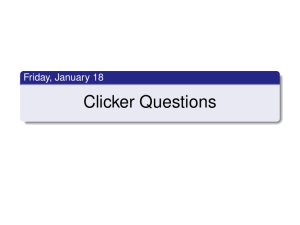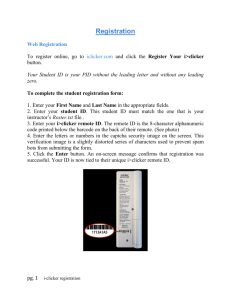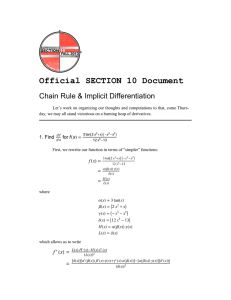Clicker Questions Friday 13 , February
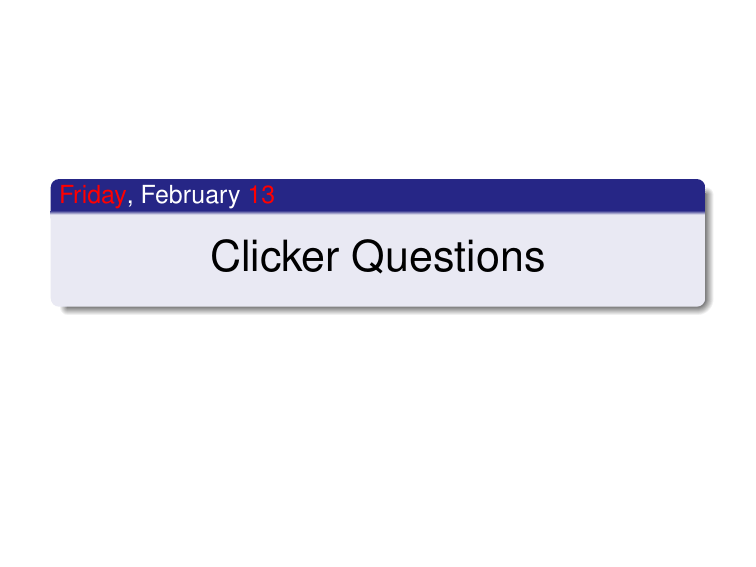
Friday , February 13
Clicker Questions
Clicker Question 1
Fraction with a fancy numerator
Find constants A , B such that
16 x
3 + 35
2 x 2 + 5 x + 3
A
= x + 1
+
B
2 x + 3
.
A.
A = 19 , B = 38
B.
A = 8 , B = − 5
2
C.
A = 8 , B = − 20
D.
A = 19 , B = − 22
E.
no such constants exist
Why don’t they exist?
We’re being asked to find constants that satisfy
16 x
3
+ 35 = A ( 2 x + 3 ) + B ( x + 1 ) ; but the degree of the left-hand side is too large for that to happen.
Clicker Question 2
The Trapezoid Rule
21
19
What is the total area of the three pictured trapezoids ?
A.
56
B.
43
C.
35
D.
44
E.
51
11 y = f H x L
5
1 2 3 4
The calculation
The trapezoids have area
1
2 f ( 2 ) + area of
1
2 f ( 3 ) , and 1
1
2 f ( 1 ) + f ( 2
2 f ( 1 ) + 2 f ( 2 ) + 2 f ( 3 ) + f ( 4 ) .
) , f ( 3 ) + f ( 4 ) , for a total
Clicker Question 3
How big does a function get?
Define h ( x ) = x + 4 − e x
. Find the maximum value, K , of h ( x ) on the interval [ − 1 , 1 ] .
A.
K = 1 −
1 e
B.
K = 3 = h ( 0 )
C.
K = 5 − e = h ( 1 )
D.
K = e − 1
E.
K = 3 − 1 e
= h ( − 1 )
Flashback to differential calculus
The maximum is at a critical point or an endpoint; h
0
( x ) = 1 − e x
, so the only critical point is x = 0 .
